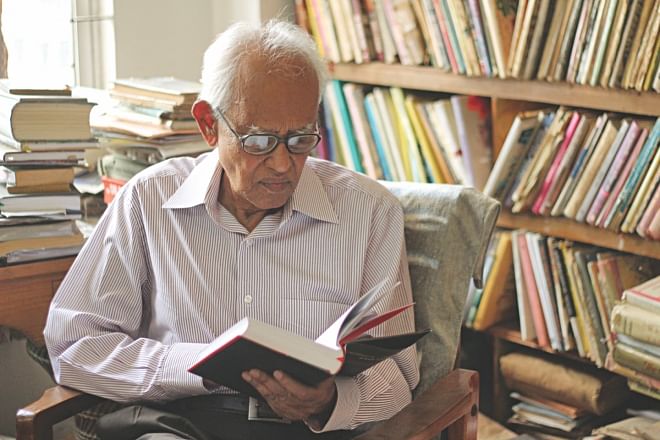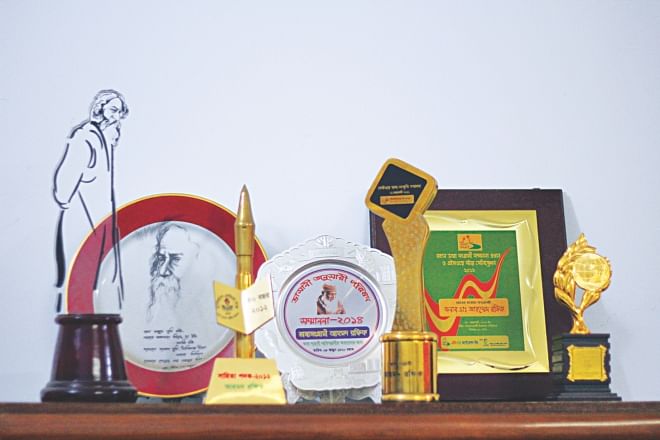Tales from the Maestro

Ahmed Rafiq is not only recognised for playing a central part in our language movement, he is also known as a distinguished writer and a prominent researcher on Nobel Laureate, Rabindranath Tagore and his literature. In 1995 he received the most prestigious award of our nation-- the “Ekushe Podok”-- for his outstanding contribution to Bengali literature, and the “Swadesh e Rabindra” from the Tagore research institute in Kolakata, in 2011. When it comes to dependable information on Tagore's literature, he is one of the few people one can rely on.
Postmaster is one of Tagore's finest works in short stories. We may know the story as it reads, but there's always more to it between the lines when it comes to Rabindranath's writings. “This is the second story he wrote when he was writing Golpoguccho. Rabindranath wrote this while sitting on the second floor of his Bunglow beside the Padma River in Shahzadpur, mesmerized by the beauty of nature and the rural people's lives. Though it was one of his first attempts at short stories, Postmaster became a major contribution of his in the world of Bengali Literature” says Ahmed Rafiq.

Postmaster, like most of Tagore's work, has a very unique description of the natural surroundings. But most of the stories that he wrote beside the river have a very common aspect. Rabindranath always gave priority to natural beauty in his stories. On this Ahmed Rafiq says, “If you read Postmaster, you will see that the emotions of the characters and the natural beauty of the village rides simultaneously as if both of them are one. When the character Ratan reacts to the postmaster leaving, you will see that the nature adjacent to the character can portray how the character feels as Tagore describes.”
Rabindranath Tagore's short stories always had a much unfinished, unsatisfied and most of the time an unhappy ending. But on the other hand, it gives a freedom to the readers to make up their own ending of the story. “The endings of most Tagore's short stories are sad melody like spreading throughout the world. You can't stop thinking about it even where the writer himself concludes,” says Ahmed Rafiq.

 For all latest news, follow The Daily Star's Google News channel.
For all latest news, follow The Daily Star's Google News channel. 



Comments